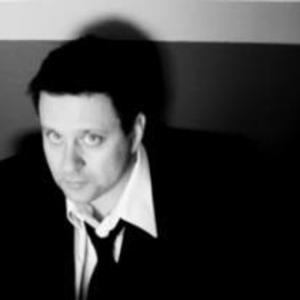“Thank you,” smiled Elder Willoughby. He and the other Elders of the council turned and stumbled out of the cottage. Clarence stated that he was going to go and mend Mr Harris’ fence. “I-I-I’ll l-l-leave you to g-g-get on with it,” he said. He turned and walked out of the cottage, neuroses and all. I sighed sadly. I was on my own, as I always was on my own.
I walked over to Clarence’s old kitchen, and walked over its old-fashioned floorboards and tried to find a frying pan. I opened various kitchen cupboards, and could barely find a frying pan in sight. Eventually I did find one, which was covered in some sort of bacteria. I revulsed in disgust and washed the entire thing using the water in the tub nearby. They didn’t use sinks. Unbelievable! I looked through the cupboards but couldn’t find any cooking oil, so I had to just cook the eggs without the need for the oil. I found a box of eggs atop the fridge. I suppose a handyman needs some eggs in order to use their energy to continue his healthy frame. You need a healthy frame for such strong work.
The first two eggs I ended up overcooking, so they had to be thrown in the bin. The second was slightly better. I took some bread from the fridge – it was one of only two things that could even be found in the fridge, the other being a pot of Marmite. Evidently, Clarence had relatively poor taste, just as bad as the rowdy folk Dad used to hang about with in the pub.
Nevertheless, I put together a somewhat haphazard excuse for some toast and eggs. For the toast I slid some slices of bread into what appeared, curiously enough to be a stolen toaster from the nineteen-sixties. It looked old, and it took a very long time for the bread to become ready. Eventually I put all the food onto a plate and hurried down to the police station.
I had wondered why there had been a police station at all if the town didn’t have any nearby criminals to arrest. Now I was finally beginning to understand why. I looked in at the window of the cell to find the rich kid sitting on the bench, looking somewhat sulky, like a spoiled child. I entered the police station and made my way to the cell where the rich kid was sitting. The warden sitting at the desk pressed a button and the door to the prison cell slid open. I went inside and cleared my throat. The rich kid looked at me, suspiciously.
“Who are you?” he snapped. “What do you want?”
“Look, I know you’ve been placed in a bad situation like this, but really I don’t mean you any harm. My name’s Harry Brooker, and I’ve got some food for you.”
I walked forward and placed the food on his lap. Despite the fact that he didn’t have a knife or fork, he grabbed the eggs-on-toast and stuffed them into his mouth the way a three-year-old might, in that very messy manner that still left some fragments of eggs and toast on his mouth afterwards. “Thank you for this!” he said, his mouth full. “You have no idea how grateful I am to be fed like this. Evidently, these villagers have some kind of civility about them. Who was it that cooked this meal?”
I replied that I was the one who had cooked it. He merely laughed – not in a derisive manner, but in a friendly manner, as though he were enjoying a good joke between friends.
“Evidently, your cooking skills are better than most boys your age. What on earth is a nice boy like you doing in a backwater like this? From your accent, you don’t sound like you’re from around here.”
Despite the fact that we’d only known each other for a couple of minutes, I found I rather liked this rich man. He didn’t sound snobby, prejudiced or downright evil as you’d expect aristocrats to be. No, he was friendly and polite and kind. I couldn’t help but trust him. So immediately, I began to tell him my story. I told him about my background on the council estate I’d grown up on, the unfortunate events that had made up my life so far, and everything up until the time the kid crashed in the neighbourhood. Despite my background, he definitely didn’t seem to mind it, but looked at me with an expression of sincere pity.
“You poor thing,” he said. “It’s no wonder you wandered here. Do you really so earnestly believe the saying ‘it takes a village to raise a child’?”
“I still do. What’s your name?”
He swallowed the last of his food and cleared his throat. “Charlie Raymond. I’m Duke Raymond’s youngest son. Look, I really, really don’t blame them for not knowing who I am. Like I said, I’m the youngest sibling of the family so barely anybody knows I exist. You won’t find me making the front page of The Times, no sir.” He added this with some sort of chuckle.
Then he continued to explain far more about his background, like the fact that he was educated at Eton College and that he was on reading week from his second year of Classical Studies at the University of Cambridge. Despite the fact that you’d consider all this boring, I actually quite enjoyed listening to him. I found him quite entertaining to listen to.
“You’re quite lucky,” I said, not knowing what I was saying. Talk is free, but you always have to be careful what you say. “You have a manor, and servants, and everyone else that waits on you, loves you. I had nobody. My dad, he beats me. The landlord on the council estate is always horrid to him and Mum because he’s got a poor-paying job in a tea factory and can’t pay the rent on time. At school, they just teach you the same old subjects over and over again, and they don’t teach you anything new. Even if I were your age, I couldn’t afford to go to university. My family-” It was here that I broke down crying – not bawling in any way, but quietly. My shrivelled, young hands wiped the tears from my eyes. Charlie Raymond stared at me with an expression of genuine empathy. I never knew people such as him existed in this world, but if there were more rich people like him, the world would be a much better place indeed.
Indeed, there was something about him that made me think he wanted to hug me. Gods know I certainly needed one after what I’d been through. He certainly probably understood that my dad was the kind of person who’d hit his son for a laugh and not because of some landlord. He looked down at the floor, sadly.
“I also feel sorry for you,” I said.
“Darned right you do!” he said. Immediately, his expression changed to one of anger and terror. “I don’t know what’s going to happen to me. They’ve no right to keep me locked up in here!”
“No, they certainly don’t. You haven’t done anything wrong!”
“Just crashed into their village, and they think that’s a crime!”
I found myself thinking back to the time when I’d refused to come home, and had hid from my dad in a church, hoping against hope that he wouldn’t be able to find me here, on sacred ground. Some hours passed by, and of course, my dad eventually found me and gave me a sound beating. Even if I went to tell the authorities, they would never believe me, that much was true. They hadn’t developed the inclination to look into people’s houses in those days.
This man felt like a friend to me. I hadn’t had that many friends back at the miserable council school I attended. Most of the other kids there were big, tough bullies with bulldogs as their pets, who would beat you up in the street for so much as looking weird. The kids who weren’t bullies were too scared to resist them. The education system of this miserable excuse for a has-been country, ladies and gents.
Whenever they found you, for example, reading, they would surely give you a sound beating.












Comments (1)
See all